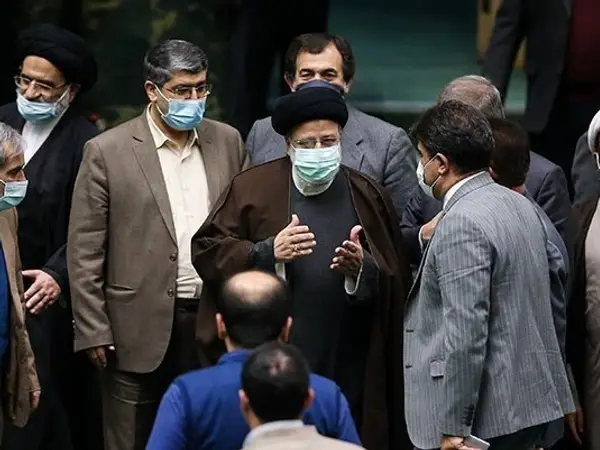While many Iranian hardliners deny the damaging impact of protests for the regime, others now claim that the unrest has strengthened the Islamic Republic.
Conservative lawmaker Behrouz Mohebbi has claimed the protests revealed the weakness of the opposition. In an interview he said that the Iranian opposition is not powerful and influential because of the discord in its ranks. Meanwhile, the opposition does not have a leader the regime's serious critics would accept.
He further claimed that there is no alternative to the Islamic Republic, and its opposition is not capable of paving the way for democracy in Iran. Mohebbi also added that the Iranian public did not take the opposition seriously.
"The opposition has no acceptable track record. On the other hand, the cultural and political celebrities who opposed the regime have been unmasked during the past months," he said.
The emergence of opposition figures in the diaspora since protests began in September, is a new phenomenon on the Iranian political landscape, as gradually they can coalesce and present a more formidable challenge to the clerical regime.
At the same time, former regime insiders such as ex-prime minister and Green Movement leader Mir-Hossein Mousavi and others made strong public statements this month challenging the regime and demanding a referendum.
Meanwhile, some ask if the protest will empower radical elements in the regime. The fact is that radicals are already in power and even if they increase their influence, it can play into the hands of the opposition and expand the protests.
According to Rouydad24 website in Tehran, protesters demanding an end to the Islamic Republic created the most important challenge for the Islamic Republic since 1979, giving rise to the assumption that the so-called theocratic government in Iran could collapse as the monarchy did 44 years ago.
The report, however, acknowledged that for the time being the Islamic Republic has still the upper hand in the confrontation with the people as a result of the repressive measures taken by security forces, but maintained that the people's anger and the worsening economic situation in Iran will inevitably lead to more protests.
The report added: "The situation is so volatile that even many regime insiders have separated their path from the government. Some top clerics in Qom and An-Najaf and even some military officials have criticized the circle around President Ebrahim Raisi. Even some hardliner news agencies openly criticize Raisi for his economic mismanagement and former insiders, such as ex-President Mohammad Khatami and former Parliamentary Speaker Ali Larijani have condemned the violent crackdown. Yet, there is no indication that anyone in the regime has listened to their complaints."
The report quoted Reza Nasr, a professor of Political Science at Johns Hopkins University, as having said in an article in the Foreign Policy magazine, "Since the start of the crisis, hard-liners have tightened their grip on the reins of power. This faction opposes engagement with the West and does not wish to return to the 2015 nuclear deal. At home, it favors isolationism and tight control of the social and political spheres. Abroad, it favors aggressive regional policies and increasing collaboration with Russia. Far from chastened by the protests, in other words, the regime that is now emerging from the initial phase of the unrest is even more intransigent and potentially aggressive than ever before."
Despite evidence of hardliners having the upper hand for the time being, Expediency Council member Mohammad Javad Bahonar has argued that the protests are deeper and more widespread than in the past five years and that even some of the supporters of the regime have their own grievances and complaints. Meanwhile, former lawmaker and international wrestling champion Amir Reza Khadem has saidthat "Nearly 100 percent of Iranian are unhappy about the current situation. Even the grey strata of the Iranian society, the silent majority, sympathizes with the protests."
Responding to Iranian conservatives' criticism of celebrities' intervention in political affairs, Khadem said that "Celebrities understand the society better than government officials."
